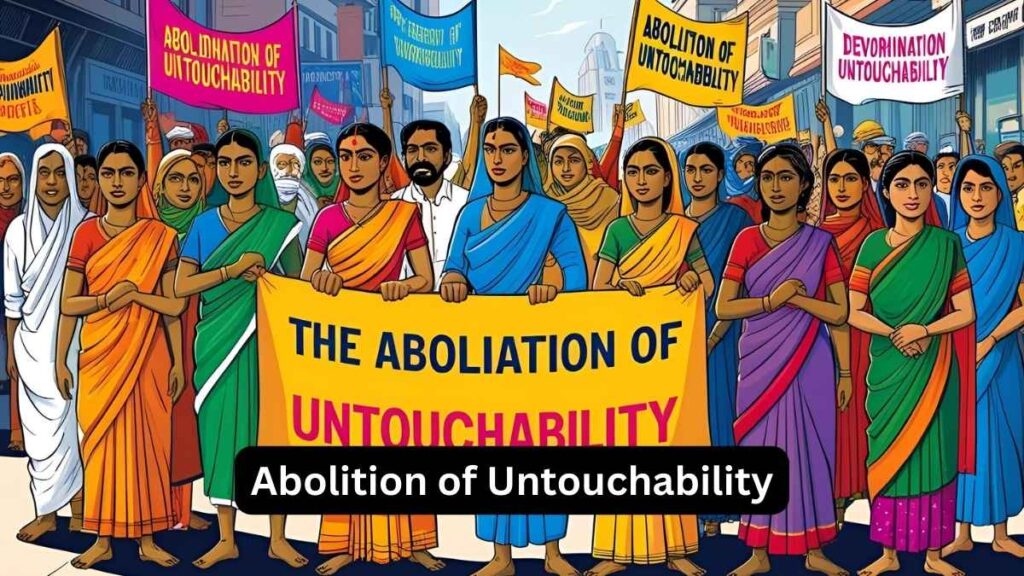Balancing Secularism and Religious Freedom in Bangladesh
Secularism and Religious Freedom
Bangladesh, founded in 1971, was built on the vision of an inclusive society where people of all religions could live together in harmony. Its 1972 Constitution reflected this aspiration, emphasising secularism, democracy, socialism, and nationalism as the nation’s core principles. Secularism was intended to ensure equal treatment of all religions and to separate religion from state affairs.
However, over time, political changes and shifts in governance have tested these ideals, particularly the balance between secularism and the recognition of Islam as the state religion. This duality has often caused tensions, affecting religious freedom and the rights of minorities.
The political upheavals of August 2024 brought to light the deeply entrenched challenges of communal and societal divisions. After widespread protests led to the collapse of Sheikh Hasina’s government, Nobel laureate Muhammad Yunus assumed leadership as the head of an interim administration. However, this transitional period was marred by a sharp increase in violence against religious minorities, particularly Hindus.
Within just 16 days, over 2,000 incidents of vandalism, looting, and attacks were reported, highlighting the acute vulnerability of minority communities during times of instability. Women faced disproportionate hardships in this environment, often becoming primary victims of violence, harassment, and societal breakdown. Historical parallels, such as the aftermath of the Godhra riots in India, vividly illustrate how women suffer unique and severe impacts in communal violence, enduring not only physical harm but also deep psychological and social scars.
Such events reflect a broader global trend where politicians exploit ethnic and religious sentiments to consolidate power. This strategy often involves stoking majoritarian communalism by reviving historical grievances and instilling fear among majority groups. Narratives are crafted to portray minorities as threats to the majority’s religion, culture, and traditions. These groups are frequently depicted as unfairly advantaged or excessively supported by the state, and as competitors for economic opportunities and jobs.
This intensifies societal divisions, creating fertile ground for violence and discrimination, as seen during the crisis in Bangladesh. Together, these patterns underscore how political manipulation of religious and ethnic identities exacerbates social instability, with devastating consequences for marginalized communities.
Over the years, politicians around the globe have skilfully exploited ethnic and religious sentiments to rally support and consolidate their power. This strategy often involves stoking majoritarian communalism, which thrives on reviving historical grievances and instilling fear among majority groups.
The narrative typically paints minorities as a threat to the majority’s religion, culture, or traditions. Furthermore, minority groups are frequently depicted as unfairly advantaged, excessively supported by the state, or as competitors taking away economic opportunities and jobs from the majority, thus intensifying societal divisions.
Although the interim government made symbolic gestures, such as visiting Hindu temples, these actions fell short of addressing the deeper issues. The lack of effective governance and systemic biases have left minority groups feeling unsafe and unsupported. Ensuring equality and protecting religious freedoms requires more than gestures; it demands concrete actions to uphold the ideals of inclusivity and harmony envisioned in Bangladesh’s founding principles.
The Foundation of Secularism in Bangladesh
At its core, secularism is about treating all religions equally and keeping religion separate from the state. This principle was enshrined in Bangladesh’s original 1972 Constitution, which aimed to build a nation free from communal tensions. However, during the military regimes of Ziaur Rahman and General Ershad in the late 20th century, amendments to the Constitution altered this vision. In 1977, secularism was removed, and in 1988, Islam was declared the state religion through Article 2A.
These changes created a conflict within the Constitution itself. While secularism was reinstated in 2011 through the 15th Amendment, the simultaneous declaration of Islam as the state religion remains a point of tension. This contradiction challenges the inclusive spirit of the Constitution and complicates efforts to ensure equality for all religions.
Minority Rights Violations
Religious minorities in Bangladesh, including Hindus, Christians, Buddhists, and Ahmadiyyas, make up around 10% of the population. Even though the country’s Constitution promises freedom of religion for everyone, these communities often face discrimination, violence, and exclusion. For example, Hindu temples are sometimes attacked, minority-owned businesses are looted, and even religious leaders are arrested. These incidents show how minorities are often neglected and left unprotected.
Populist leaders often adopt anti-elite rhetoric and tend to align with right-wing neo-conservative ideologies. They champion capitalism in its most exploitative forms, working to undermine organized labour, exacerbate inequality, and foster crony capitalism. To maintain public support, they manipulate public sentiment through campaigns of hate and fear, eroding democratic structures and weakening social protections. This climate of fear deepens social divisions and political instability, empowering these leaders to exploit long-standing anxieties and incite violence against perceived “religious” enemies, all under the pretence of “defending the nation.
” Such developments resonate with the warnings of former Prime Minister Jawahar Lal Nehru, who feared that majoritarianism could be disguised as nationalism to suppress diverse religious beliefs. This concern is aptly highlighted by former diplomat Rajiv Dogra in his book India’s World: How Prime Ministers Shaped Foreign Policy (Rupa, 2020), where he observes the dangers of nationalism being weaponised to marginalise minority communities.
Islamist Influence
Over the years, some Islamist groups have gained power in politics and society. Unfortunately, this has led to religion being misused for political purposes, which has further isolated minority communities. While the Constitution tries to balance secularism and the recognition of Islam as the state religion, this balance is hard to maintain. When one religion is given special importance, it often overshadows the promise of equality for everyone, making it harder to enforce fair treatment of all faiths.
The Role of Governance
To protect religious freedoms and maintain harmony among communities, the government has a key role to play. Strong leadership is needed to stop violence and discrimination against minorities. This includes enforcing laws that punish hate crimes, holding those responsible for communal violence accountable, and creating systems that allow people to resolve their conflicts peacefully.
Symbolic gestures, such as visiting temples or other religious sites, can be meaningful expressions of goodwill, but they alone cannot address the deeper issues of inequality and mistrust. Achieving lasting peace and harmony requires proactive engagement from all societal stakeholders, including religious leaders, who must take on the role of promoting counternarratives that challenge divisive ideologies.
By participating in governance efforts and advocating for coexistence, religious leaders can help foster a culture of unity and mutual respect. At the same time, the government must complement these efforts with tangible actions. Providing security to minority communities, repairing damaged places of worship, and demonstrating a genuine commitment to protecting the rights of all citizens are critical steps.
These measures are not only practical but also serve as visible assurances to vulnerable groups, rebuilding trust and reinforcing the principles of equality enshrined in the constitution. Such a holistic approach—combining symbolic gestures, the involvement of community leaders, and decisive governmental action—can lay the foundation for a society where all citizens, regardless of their faith, feel safe, valued, and empowered. Only through these strong and practical measures can Bangladesh fulfil its constitutional promise of religious freedom and equality, ensuring a stable and harmonious future.
Judicial Interventions
The judiciary has made significant efforts to uphold secularism in Bangladesh. In landmark cases, the courts have ruled against constitutional amendments that undermined the country’s secular identity. These rulings have emphasised that the state must treat all religions equally, even while Islam remains the state religion.
However, translating these rulings into practical actions is a challenge. Political resistance and societal biases often hinder the effective implementation of judicial decisions. Stronger enforcement mechanisms and public accountability are needed to ensure that the ideals of secularism are upheld in practice. This is where the role of the judiciary becomes very important, as pointed out by Farhanaz Ispahani in her book Politics of Hate: Religious Majoritarianism in South Asia (HarperCollins, 2023).
She explains that while such harmful acts may continue to happen in society, it is critical to ensure that justice is served to the victims. By doing so, the judiciary can help create a safer and fairer society where everyone is treated equally, no matter their religion or background. This also sends a strong message that violence and hatred will not be tolerated.
Reaffirming Secularism
Promoting secularism, which means treating all religions and beliefs equally, is very important for creating peace and unity in Bangladesh. An example of how this can be done comes from the Framework Convention on National Minorities by the Council of Europe. This agreement encourages countries to celebrate and accept different ethnic groups, cultures, and beliefs in a way that works in a democratic society where everyone is treated fairly. Another helpful idea comes from Article 27 of the International Covenant on Civil and Political Rights (ICCPR).
This rule says it’s the responsibility of the government to protect people who belong to smaller ethnic, religious, or language groups. It means that everyone, no matter what their background, should feel safe and respected. One way to make these ideas work is through education and raising awareness. For example, schools can teach children the importance of respecting different religions and cultures. Lessons about diversity and equality can help young people understand that all faiths are valuable and should be treated with kindness. By doing this, people learn to live together peacefully, and the whole society becomes stronger and happier.
Civil society organisations and community leaders also play a key role in promoting dialogue and understanding between different religious groups. By working together, they can reduce mistrust and build a more inclusive society.
International Oversight
Bangladesh is a signatory to international treaties that protect human rights, including religious freedoms. It is important for the country to align its domestic policies with these commitments. Engaging with international human rights organisations can provide valuable oversight and ensure that the government remains accountable for protecting its minority populations.
Global partnerships and regional cooperation can also help address shared challenges, such as rising communal tensions and discrimination. Learning from the experiences of other nations, such as India’s approach to religious coexistence, can provide useful insights for strengthening Bangladesh’s commitment to secularism.
Comparative Insights
Bangladesh’s approach to secularism differs from that of some neighbouring countries. For example, while both Bangladesh and India guarantee freedom of religion, their treatment of religious education highlights key differences. Bangladesh allows religious instruction in schools, as long as it aligns with the student’s faith. This reflects a more flexible approach compared to India, which strictly separates religion from state-funded education.
While this accommodationist stance can promote inclusivity, it also requires careful oversight to ensure that it does not lead to unequal treatment of minority communities. Striking this balance is essential for maintaining the secular ideals of the Constitution.
Conclusion
The balance between secularism and Islam as the state religion in Bangladesh reflects the nation’s struggle to uphold its founding ideals of equality and inclusivity. While the Constitution guarantees religious freedom, the coexistence of secularism with a state religion creates challenges that are often felt most acutely by minority communities.
Recent incidents of violence and discrimination highlight the urgent need for stronger governance, judicial enforcement, and public awareness to protect minority rights. Promoting secularism as a unifying principle and ensuring international accountability can help bridge the gap between constitutional promises and societal realities.
Bangladesh’s journey toward religious harmony is not without obstacles, but it remains rooted in a vision of inclusivity and equality. By reaffirming its commitment to secularism and taking decisive actions to protect all citizens, the nation can move closer to realising its constitutional ideals and building a society where everyone feels safe and valued.
Subscribe to our Youtube Channel for more Valuable Content – TheStudyias
Download the App to Subscribe to our Courses – Thestudyias
The Source’s Authority and Ownership of the Article is Claimed By THE STUDY IAS BY MANIKANT SINGH




